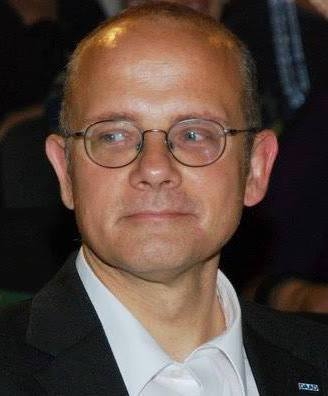Recent attention by Russian and Western commentators was focused on the presidential elections of March 2nd, 2008, and the personality of Dmitry Medvedev. Therefore, the appointment of 44-year old Ivan Demidov as head of the Ideological Directorate of the Political Department of United Russia’s Central Executive Committee in late February 2008 went largely unnoticed.
Demidov is a colorful Russian politician who became a cult figure among the young in the 1990s when he was a popular moderator and producer of youth-related programs for various TV stations. His new post as official chief ideologist of Russia’s ruling party had to be freed by another prolific politician, Leonid Goryainov, for Demidov.
As Russia has recently returned to a de facto single-party system, Demidov occupies a unique position in Putin’s “vertical of power.” His office has the explicit purpose to formulate and spread the ideology of the party that controls most of Russia’s federal, regional and local parliaments, and which (together with some minor parties) officially nominated Medvedev as candidate for president.
Demidov had already before his recent advance been working as an advisor for United Russia. In addition, he was editor of the party’s nationalist “Russian Project” web site, and head of the Coordination Council of United Russia’s rabidly anti-Western youth wing called “The Young Guard.” He also worked as director of the small religious TV channel “Spas” (Savior) which transmits a variety of programs informed by strong anti-Americanism.
Demidov had become famous, however, already before these political appointments. In the 1990s, he was known as a non-conformist journalist coming out of a group of young anti-Soviet TV men who, with their widely watched talk-shows, had their share in the delegitimization of the late USSR’s social-political system. Demidov was then seen as somebody linked to Russia’s liberal or, at least, anti-totalitarian movement. Yet, in recent years, he developed along the lines of a number of other Russian prominent figures of his age, including Sergei Markov or Mikhail Leont’ev – two of the Kremlin’s preferred political commentators whom one can see on prime time TV shows several times per week.
Like Markov or Leonte’v, Demidov went from being a symbol of Russia’s new post-communist generation to becoming a part of Moscow’s neo-traditionalist establishment. He is now an advocate of Russia as a unique world civilization as well as self-sufficient great power, and participates in the Kremlin’s increasingly successful spread of such attitudes among teenagers and students. His recent promotion follows general trends in the Kremlin’s cadre policies expressing itself in the appointment, earlier this year, of the prolific Russian nationalist Dmitry Rogozin as Russia’s new envoy to NATO Headquarters in Brussels.
This might have been the reason why Demidov’s rise has, so far, caused little attention in Russia and the West. It needs to be added, however, that Demidov has professed to be under the influence of a particularly extreme brand of Russian imperialism known under the label of “neo-Eurasianism.” This ideology has been principally developed, in hundreds of articles and books, by the neo-fascist Russian theoretician Alexander Dugin (b. 1962), and constitutes perhaps the most radical anti-democratic ideology that has gained acceptance within Russia’s political establishment today.
In a November 2007 interview for Dugin’s website Evrazia.org, Demidov stated that “doubtlessly, a crucial factor, a certain breaking point, in my life, was the appearance of Alexander Dugin.” The two men have been cooperating for a while now within Demidov’s “Spas” TV channel where Dugin has his own show called “Vekhi” (signposts). To be sure, Demidov has repeatedly stated that his various patriotic propaganda projects are designed to deprive Russophile ultra-nationalists of their control of the nationalist agenda and thus aim to fight the increase of xenophobia and hate crimes in Russia. He announced that “the words ‘Russian’ and ‘fascism’ are antonyms,” and that he and his associates will “fight against the infusion of the term ‘Russian fascism’ into mass consciousness.”
(Note: You can view every article as one long page if you sign up as an Advocate Member, or higher).





